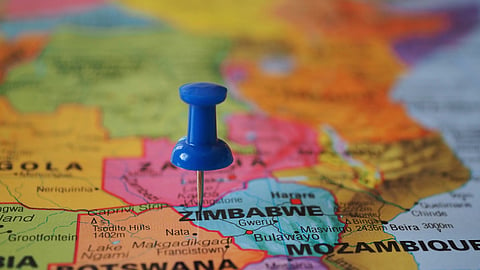Swapping green soap for food: Rural Zimbabweans fight to survive in a broken system - Cathy Buckle
Key topics:
Farmers must pay in USD but are partly paid in unstable local currency.
Selling maize privately is illegal; state-set prices hurt rural producers.
Bartering is widespread as people trade goods to survive Zimbabwe’s crisis.
Sign up for your early morning brew of the BizNews Insider to keep you up to speed with the content that matters. The newsletter will land in your inbox at 5:30am weekdays. Register here.
Support South Africa’s bastion of independent journalism, offering balanced insights on investments, business, and the political economy, by joining BizNews Premium. Register here.
If you prefer WhatsApp for updates, sign up to the BizNews channel here.
The auditorium doors will open for BNIC#2 on 10 September 2025 in Hermanus. For more information and tickets, click here.
By Cathy Buckle
Dear Family and Friends
Bumping along in an ox cart under a deep blue sky in rural Zimbabwe a youngster in a yellow shirt walked ahead of the oxen, a small stick in his hand. In the cart two men and two youngsters sat atop the empty bags, on their way to collect maize from the field. I slowed down and pulled aside to let them pass and we waved to each other. Further along, in the valley below the mountains, a woman walked by with a big bag of maize cobs balanced on her head, telling the story of Zimbabwe in that one image in the winter of 2025. It’s a story of struggle and hard work, of diligence and a dogged determination not to give up hope and not to go hungry this year. There is no time for greedy corruption, suspicious tenders or selfish politics here because this is the season when everyone is busy securing food for the year ahead, but even here there is a story behind the story.
Imagine this. To grow your crop you have to pay in US dollars to buy the diesel and pay a contractor to plough your land. You buy the maize seed, fertiliser and chemicals in US dollars. When the crop is mature and dry and you have carried the harvest home you pay in US dollars to have a contractor with a sheller to come and shell the crop. When the kernels are dry you pay in US dollars for the bags and the chemicals needed to store the crop and keep the weevils out. Once your harvest is all stacked up and you’ve put aside what you need for your family for the next year, you need to sell the rest so you can recoup your costs and be ready for the next crop to be planted in October.
Read more:
The government stipulates that all maize must be sold to the GMB (Grain Marketing Board), saying it’s illegal to sell maize privately and you can be fined or have your crop confiscated if you do. The government owns the GMB and this year the fixed producer price for a ton of maize is US$376, but the GMB will not pay you all of the money in US dollars, they will only pay you 200 dollars in US dollars and the balance will be in ZiG’s, Zimbabwe’s local currency, which is very hard to find and which few people want. So, despite spending all your saved up US dollars to grow your crop, you have to accept 53% of it in US dollars and the rest in ZiG’s. Right now the official bank rate is 26.9 ZiG’s for one US dollar and the black-market rate is 33 -36 ZiG’s for one US dollar. Who knows what the rate will be when your crop money finally arrives in your account. No one has forgotten that this time last year you only needed 13.5 ZiG’s to buy one US dollar.
But wait, the story’s not quite over, because the GMB won’t pay you in cash, the way you paid for all the inputs to grow your crop, they will only pay you into your bank account. All banks have minimum balances, transaction fees and ‘service charges’ and so you watch your precious money melt away under the deep blue Zimbabwean sky.
Meanwhile people who didn’t manage to grow a crop are all looking for maize and the big swop is in full swing. The negotiations buzz backwards and forwards: 2 bars of green laundry soap for a 5 litre tin of maize; 4kgs of sugar for a 20 litre bucket of maize; 10 goats for a ton of maize. These are the real people of Zimbabwe and my letter this week is in recognition of them, the guys on the ox cart, the woman with the bag on her head, the ordinary people swopping green soap for food, people who enrich my life every day with every smile, every wave and every step of hope that they take to hold on.
Watch this space for exciting news about my beautiful new 2025 photobook which is about to be released.
There is no charge for this Letter From Zimbabwe but if you would like to donate please visit my website.
Until next time, thanks for reading this Letter From Zimbabwe now in its 25th year, and my books about life in Zimbabwe, a country in waiting.
Ndini shamwari yenyu (I am your friend)
Love Cathy 3rd July 2025.
Copyright © Cathy Buckle https://cathybuckle.co.zw/

